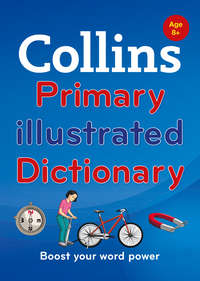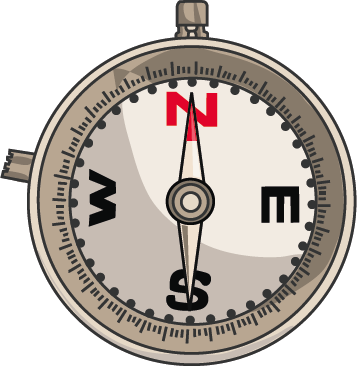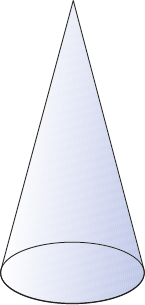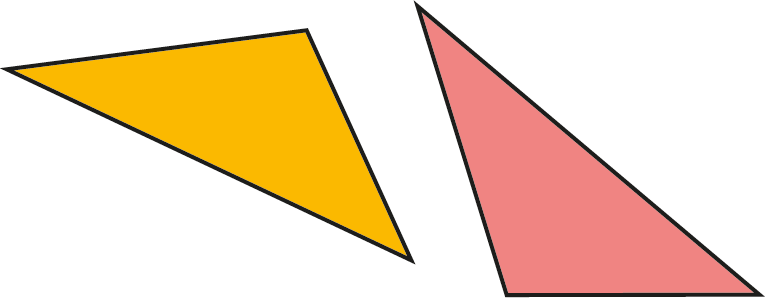
Collins Primary Illustrated Dictionary
colour colours
NOUN the appearance something has as a result of reflecting light • Red, blue and yellow are the primary colours.
colour blind
ADJECTIVE Someone who is colour blind is not able to see the difference between certain colours.
colourful
ADJECTIVE 1 Something that is colourful has a lot of different colours or bright colours.
ANTONYMS: dull, colourless
2 A colourful story is very exciting and interesting.
ANTONYMS: dull, boring
colourless
ADJECTIVE 1 without colour
2 dull and uninteresting
colt colts
NOUN a young male horse
column columns
NOUN 1 a tall, solid, upright cylinder, especially one supporting part of a building
2 In a newspaper or magazine, a column is a vertical section of writing.
3 a group of people or vehicles moving in a long line
coma comas
NOUN a state of deep unconsciousness
comb combs, combing, combed
NOUN 1 a flat object with long, thin, pointed parts, which you use for tidying your hair
VERB 2 When you comb your hair, you tidy it with a comb.
combat combats, combating, combated
NOUN 1 fighting • In the Falklands War many soldiers had to take part in armed combat.
VERB 2 If someone combats something, they try to stop it happening. • We need new ways to combat crime.
combination combinations
NOUN 1 a mixture of things • Fatima won the competition through a combination of skill and determination.
2 a series of numbers or letters used to open a special lock
combine combines, combining, combined
VERB If you combine things, you mix them together. • Combine the butter and sugar, then add the eggs. • The book combines adventure and mystery.
combine harvester combine harvesters
NOUN a large machine used on farms to cut, sort and clean grain
combustion
NOUN the process of burning
come comes, coming, came
VERB 1 If you come to a place, you move or arrive there.
2 If something comes to a particular point, it reaches that point. • The water came up to her waist.
3 When a particular time comes, it happens. • Spring came early this year.
comedian comedians
NOUN an entertainer whose job is to make people laugh
comedy comedies
NOUN a play, film, or television programme that is intended to make people laugh
comet comets
NOUN an object that travels around the sun leaving a bright trail behind it
[from Greek kometes meaning long-haired]
comfort comforts, comforting, comforted
NOUN 1 the state of being pleasantly relaxed
2 a feeling of relief from worry or unhappiness • It’s a comfort to me to know that they are safe.
VERB 3 If you comfort someone, you make them less worried or unhappy.
comfortable
ADJECTIVE 1 If you are comfortable, you are at ease and relaxed.
2 Something that is comfortable makes you feel relaxed. • a comfortable chair
comfortably ADVERB
comic comics
NOUN 1 a magazine that contains stories told in pictures
ADJECTIVE 2 funny • a comic song
comma commas
NOUN the punctuation mark (,). It can show a short pause, or it can separate items in a list or words in speech marks from the rest of the sentence.
command commands, commanding, commanded
NOUN 1 an order to do something
VERB 2 If you command someone to do something, you order them to do it.
commemorate commemorates, commemorating, commemorated
VERB If you commemorate something, you do something special to show that you remember it. • On Remembrance Day we commemorate all the people who died in the two World Wars.
comment comments, commenting, commented
NOUN 1 a remark about something
VERB 2 If you comment on something, you make a remark about it.
commentary commentaries
NOUN a description of an event that is broadcast on radio or television while the event is happening • The commentary on the match was on the radio.
commentator commentators
NOUN someone who gives a radio or television commentary
commerce
NOUN the buying and selling of goods
commercial commercials
NOUN 1 an advertisement on television or radio
ADJECTIVE 2 Commercial activities involve producing large amounts of goods to sell and make money.
commit commits, committing, committed
VERB When someone commits a crime or sin, they do it. • The police know who committed the burglary.
committee committees
NOUN a group of people who make decisions on behalf of a larger group
common commoner, commonest; commons
ADJECTIVE 1 Something that is common exists in large numbers or happens often.
NOUN 2 an area of grassy land where everyone can go
ADJECTIVE 3 If something is common to two or more people, they all have it or use it. • We had a common interest in butterflies.
PHRASE 4 If two things or people have something in common, they both have it. • Sarah and I have a lot in common.
common noun common nouns
NOUN Common nouns name things in general. They begin with lower-case letters: girl, boy, animal, picture.
See noun
common sense
NOUN knowing how to behave sensibly in any situation
Commonwealth
NOUN The Commonwealth is a group of countries that used to be ruled by Britain.
commotion
NOUN a lot of noise and excitement
communal
ADJECTIVE shared by a group of people • The shop had communal changing rooms.
communicate communicates, communicating, communicated
VERB When people communicate, they exchange information, usually by talking or writing to each other.
communication communications
NOUN 1 the act of exchanging information, usually by talking, writing or, in the case of animals, making sounds • the communication of ideas
PLURAL NOUN 2 Communications are electrical or radio systems that allow people to broadcast or communicate information.
communion
NOUN 1 a Christian religious service in which people share holy bread and wine
2 the sharing of thoughts and feelings
community communities
NOUN all the people living in a particular area
commuter commuters
NOUN a person who has to travel a long way to work every day
compact
ADJECTIVE Something that is compact takes up very little space, or no more space than is necessary.
compact disc compact discs
NOUN a music or video recording in the form of a small plastic disc
companion companions
NOUN someone you travel or spend time with
company companies
NOUN 1 a business that sells goods or provides a service
2 If you have company, you have a friend or visitor with you.
PHRASE 3 If you keep someone company, you spend time with them.
comparative comparatives
ADJECTIVE 1 You use comparative to show that something is true only when compared with something else.
NOUN 2 In grammar, the comparative is the form of an adjective or adverb that shows an increase in size, quality or amount. It is usually formed by adding -er to a word, for example, bigger, faster, or by putting more before the word, for example, more difficult.
compare compares, comparing, compared
VERB When you compare things, you see in what ways they are different or similar. • We compared our hair to see whose was longest.
comparison comparisons
NOUN When you make a comparison, you consider two things together and decide in what ways they are different or similar.
compartment compartments
NOUN 1 a section of a railway carriage
2 one of the separate sections of something such as a bag or a box
compass compasses
NOUN 1 an instrument with a magnetic needle that always points north. You use a compass to find your way.

PLURAL NOUN 2 Compasses are a hinged instrument for drawing circles.
compassion
NOUN pity and sympathy for someone who is suffering
compassionate ADJECTIVE
compass point compass points
NOUN one of the 32 marks on the dial of a compass that show direction • North, south, east and west are compass points.
compel compels, compelling, compelled
VERB 1 If you compel someone to do something, you force them to do it.
ADJECTIVE 2 A compelling story or event is extremely interesting.
3 A compelling argument or reason makes you believe that something is true.
compensate compensates, compensating, compensated
VERB 1 To compensate someone means to give them money to replace something that has been lost or damaged.
2 If one thing compensates for another, it cancels out the bad effects of it. • The trip to Disneyland compensated for her long illness.
compete competes, competing, competed
VERB 1 If you compete in a contest or game, you take part in it.
2 If you compete, you try to do better than others.
competent
ADJECTIVE Someone who is competent at something can do it satisfactorily. • He is a competent nurse.
competition competitions
NOUN an event in which people take part to find out who is the best at something
compile compiles, compiling, compiled
VERB When you compile information, you collect it and put it together.
complain complains, complaining, complained
VERB 1 If you complain, you say that you are not happy about something. • The neighbours complained about the noise.
2 If you complain of pain or illness, you say that you have it.
complaint NOUN
complement complements, complementing, complemented
VERB 1 If one thing complements another, the two things go well together. • Her piano music complements the poem.
NOUN 2 In grammar, a complement is a word or phrase that gives information about the subject or object of a sentence. For example, in the sentence Rover is a dog, is a dog is the complement.

complete completes, completing, completed
VERB 1 If you complete something, you finish it. • She has just completed her third short story.
ADJECTIVE 2 If something is complete, none of it is missing.
completely
ADVERB totally
SYNONYM: utterly
complex complexes
ADJECTIVE 1 Complex things have many different parts and are hard to understand.
NOUN 2 a group of buildings used for a particular purpose, such a sports complex
complexion complexions
NOUN the quality of the skin on your face
complicated
ADJECTIVE Something that is complicated is hard to understand.
complication complications
NOUN something that makes a situation more difficult to deal with
compliment compliments
NOUN If you pay someone a compliment, you tell them you admire or like something about them.

component components
NOUN The components of something are the parts it is made of.
compose composes, composing, composed
VERB 1 If you compose a piece of music, a letter, or a speech, you write it.
2 If something is composed of particular things or people, it is made up of them.
composer composers
NOUN someone who writes music
composition compositions
NOUN 1 a piece of music or writing
2 the things that something is made up of
compost
NOUN a mixture of rotted plants and manure that gardeners add to the soil to help plants grow
compound word compound words
NOUN a word with a single meaning, but made up of two or more words. For example, gingerbread, housework and teapot are all compound words.
comprehend comprehends, comprehending, comprehended
VERB If you comprehend something, you understand it.
comprehensive comprehensives
ADJECTIVE 1 Something that is comprehensive includes everything that you need to know.
NOUN 2 a school where children of all abilities are taught together
comprehensively ADVERB
compress compresses, compressing, compressed
VERB If you compress something, you squeeze it or shorten it. • She compressed her story into one page.
compromise compromises, compromising, compromised
NOUN 1 an agreement in which people accept less than they really wanted
VERB 2 When people compromise, they settle for less than they really wanted.
compulsory
ADJECTIVE If something is compulsory, you have to do it.
computer computers
NOUN an electronic machine that stores information and makes calculations
computerize computerizes, computerizing, computerized; also spelt computerise
VERB When a system or process is computerized, such as train timetables or bank accounts, the work is done by computers.
comrade comrades
NOUN a companion, especially in battle
con cons, conning, conned
VERB 1 If someone cons you, or you are conned, you are tricked into doing something. • He conned me into buying the tickets.
NOUN 2 a trick that makes you believe or do something that you would not normally believe or do
concave
ADJECTIVE A concave surface curves inwards, rather than being level or bulging outwards.
ANTONYM: convex

conceal conceals, concealing, concealed
VERB If you conceal something, you hide it.
conceited
ADJECTIVE Someone who is conceited is too proud of their appearance or abilities.
SYNONYMS: bigheaded, self-important
conceive conceives, conceiving, conceived
VERB 1 If you can’t conceive of something, you can’t imagine it or believe it. • He couldn’t conceive of anything more fun than surfing.
2 If you conceive something such as a plan, you think of it and work out how it could be done. • Alex conceived the idea while eating his lunch.
3 When a woman conceives, she becomes pregnant.
concentrate concentrates, concentrating, concentrated
VERB 1 If you concentrate on something, you give it all your attention. • I need to concentrate on my homework.
2 When something is concentrated in one place, it is all there rather than in several places. • The shops were concentrated in the town centre.
concentrated
ADJECTIVE A concentrated liquid has been made stronger by having water removed from it. • concentrated orange juice
concentration concentrations
NOUN 1 the ability to give your full attention to something you do or hear
2 A concentration of something is a large amount of it in one place.
concept concepts
NOUN an abstract or general idea
conception conceptions
NOUN the idea you have of something
concern concerns, concerning, concerned
NOUN 1 worry about something or someone
2 If something is your concern, it is your duty or responsibility.
VERB 3 If something concerns you or if you are concerned about it, it worries you.
concerned ADJECTIVE
concerning
PREPOSITION You use concerning to show what something is about. • an article concerning fox hunting
concert concerts
NOUN a public performance by musicians
concession concessions
NOUN If you make a concession, you agree to let someone have or do something.
concise
ADJECTIVE giving all the necessary information using as few words as possible • a concise explanation
SYNONYMS: brief, short
concisely ADVERB
conclude concludes, concluding, concluded
VERB 1 If you conclude something, you examine the facts and decide what your opinion is. • We concluded that the letter was a fake.
2 When you conclude something, you finish it.
conclusion conclusions
NOUN 1 the end of something
2 a final decision about something • We wanted to go for a swim in the sea, but we came to the conclusion that it was too cold.
concrete
NOUN 1 a building material made by mixing cement, sand and water
ADJECTIVE 2 real and physical, rather than abstract • He had no concrete evidence.
concussion
NOUN damage to the brain caused by a blow or a fall, which causes confusion, sickness or unconsciousness
concussed ADJECTIVE
condemn condemns, condemning, condemned
VERB 1 If you condemn something, you say it is bad and unacceptable.
2 If someone is condemned to a punishment, they are given it. • The burglar was condemned to five years in prison.
condensation
NOUN a coating of tiny drops of liquid formed on a cold surface by steam or vapour
condense condenses, condensing, condensed
VERB 1 If you condense a piece of writing or a speech, you shorten it.
2 When a gas or vapour condenses, it changes into a liquid.
condition conditions
NOUN 1 the state someone or something is in • The antique clock was still in good condition.
2 something that must happen in order for something else to be possible • I can go swimming on Saturday on the condition that I do my homework first.
conduct conducts, conducting, conducted
Said “kon-duct” NOUN 1 behaviour
Said “kon-duct” VERB 2 When you conduct an activity, you carry it out.
3 When someone conducts an orchestra, a band or a choir, they direct it in a piece of music.
4 If something conducts heat or electricity, heat or electricity can pass along it. • Copper conducts electricity well.
conductor conductors
NOUN 1 someone who conducts an orchestra or choir
2 someone who moves round a bus or train selling and checking tickets
3 a substance that conducts heat or electricity
cone cones
NOUN 1 a regular three-dimensional shape with a circular base and a point at the top

2 the fruit of a fir or pine tree
conference conferences
NOUN a meeting at which formal discussions take place
confess confesses, confessing, confessed
VERB If you confess to something, you admit that you did it.
confession confessions
NOUN 1 If you make a confession, you admit that you have done something wrong.
SYNONYM: admission
2 the act of confessing something, especially as a religious act, where people confess their sins to a priest
confetti
NOUN small pieces of coloured paper thrown over the bride and groom at a wedding
[from Italian confetto meaning a sweet]
confide confides, confiding, confided
VERB If you confide in or to someone, you tell them a secret.
confidence
NOUN 1 If you have confidence in someone, you feel you can trust them.
2 Someone who has confidence is sure of their own abilities or qualities.
confident
ADJECTIVE 1 If you are confident about something, you are sure it will happen the way you want it to.
2 Someone who is confident is very sure of themselves and their own abilities.
confidently ADVERB
confidential
ADJECTIVE Confidential information is meant to be kept secret.
confine confines, confining, confined
VERB 1 If someone confines you to a place, you can’t leave it. • The doctor confined Debbie to bed for two weeks as she had pneumonia.
2 If you confine yourself to doing something, you do only that thing. • On their trip abroad, they confined themselves to drinking bottled water.
confirm confirms, confirming, confirmed
VERB 1 If you confirm something, you say or show that it is true. • The teacher confirmed that we had all passed our spelling test.
2 If you confirm an arrangement or appointment, you say it is definite. • Dad confirmed our holiday booking.
confiscate confiscates, confiscating, confiscated
VERB If someone confiscates something, they take it away from someone as a punishment.
[from Latin confiscare meaning to seize for the public treasury]
confiscation NOUN
conflict conflicts, conflicting, conflicted
NOUN 1 disagreement and argument
2 a war or battle
VERB 3 When two ideas or interests conflict, they are different and it seems impossible for them both to be true.
conform conforms, conforming, conformed
VERB 1 If you conform, you behave the way people expect you to.
2 If something conforms to a law or to someone’s wishes, it does what is required or wanted.
conformist NOUN OR ADJECTIVE
confront confronts, confronting, confronted
VERB 1 If you are confronted with a problem or task, you have to deal with it.
2 If you confront someone, you meet them face to face, especially when you are going to fight or argue with them.
confrontation confrontations
NOUN a serious dispute between two people or groups of people who come face to face
confuse confuses, confusing, confused
VERB 1 If you confuse two people or things, you mix them up and are not sure which is which.
2 If you confuse someone, you make them uncertain about what is happening or what to do.
confusion NOUN
congested
ADJECTIVE 1 When a road is congested, it is so full of traffic that normal movement is impossible.
2 If your nose is congested, it is blocked and you cannot breathe properly.
congestion NOUN
congratulate congratulates, congratulating, congratulated
VERB If you congratulate someone, you say that you’re pleased about something good that has happened to them, or praise them for something they have done. • He congratulated us on winning the competition.
congratulations NOUN
congregation congregations
NOUN the people attending a service in a church
congruent
ADJECTIVE In mathematics, things that are congruent are exactly the same size and shape, and would fit exactly on top of each other. • congruent triangles

conifer conifers
NOUN any type of evergreen tree that produces cones
coniferous ADJECTIVE
conjunction conjunctions
NOUN In grammar, a conjunction is a word that links two other words or two clauses, such as and, but, or, while and that. For example: “I love bacon and eggs.” “I’m happy, but my brother is not”.
conjurer conjurers
NOUN someone who entertains people by doing magic tricks
conker conkers
NOUN a brown nut from a horse chestnut tree
connect connects, connecting, connected
VERB 1 If you connect two things, you join them together.
2 If one thing or person is connected with another, there is a link between them.
connection connections
NOUN 1 the point where two things are joined together
2 If you make a connection at a station or airport, you continue your journey by catching another train, bus or plane. • Our train was late, so we missed our connection.